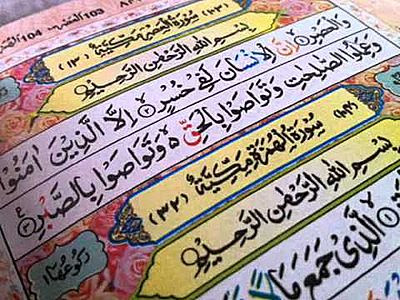Rajab's almost gone, the moon is waning away, and soon, inshAllah, the new crescent shall be gleaming to announce Shabaan. RasoolAllah (sallalahu alehe wa'alehi wasallam) used to begin fasting in Shabaan as a prelude and towards the end of the month he would stop to gather strength for Ramadan. Therefore, planning ahead is a Sunnah and each of us should proactively organize our goals and schedule for Ramadan. I am, too, planning ahead. There are a couple of pointers I wish to share with you as a prelude to Ramadan and also a list of things that I would be putting up on Sisterly Yours to help ensure a productive Ramadan for myself and my brothers and sisters, inshAllah.
My initiatives towards a productive Ramadan sparked off as I began to write pre-Ramadan prep articles for Productive Muslim.com's Ramadan project - Productive Ramadan.com. Last year I had participated in their Ramadan activities and their Taskinator, a Ramadan To-Do List, was a structural component of my Ramadan Diaries. Ramadan Diaries was a special Ramadan series that I came up with for the readers of Sisterly Yours. Alhamdulillah, it was pretty successful. This year I wish to take it to a better level.
Ramadan Diaries was a minimal series that started off with the day's revised Taskinator update and an article pertaining to the theme of the ongoing Ashra of the month. I included Ramadan ethics and etiquette, reflections on the questions prompted by various Muslim youth initiatives like Productive Ramadan, Productive Muslim, Habibi Halaqas, and iPoet, and also some articles about the theme of Ramadan and how it influences our lives.
This year, inshAllah, I intend to include:
- The Taskinator from Productive Ramadan.com
- Hadith from the Book of Fasting in Sahih Al-Bukhari series
- Daily Ayah from the Quran and its Tafsir
- Recipe of the Day
- Tidbits from Ramadan activities going on fellow websites and pages.






.jpg)

